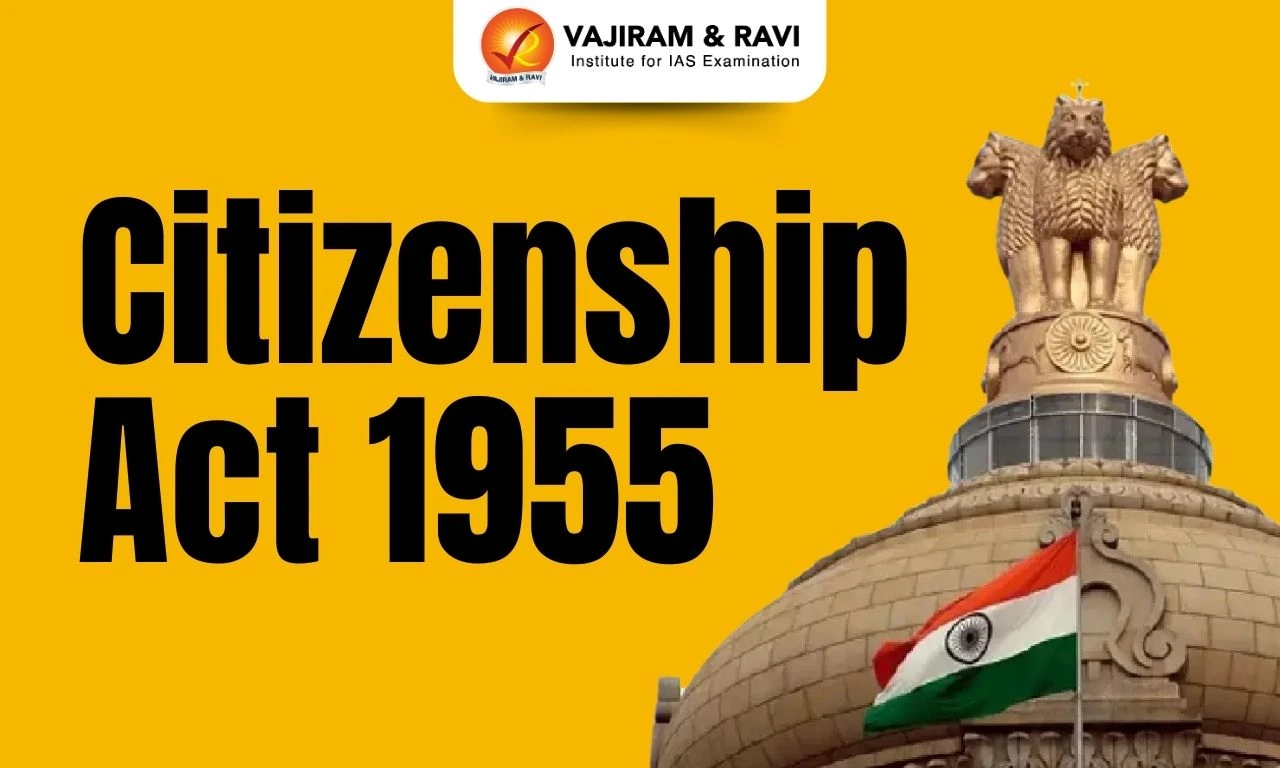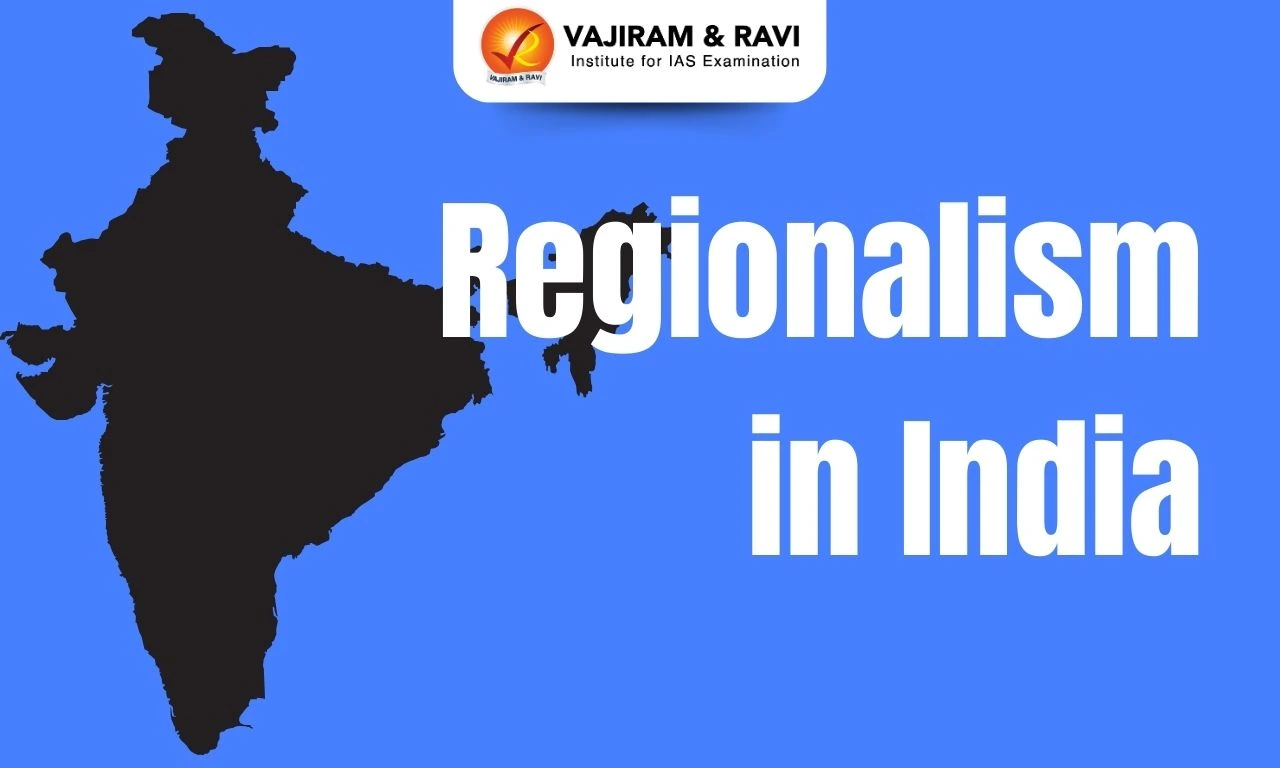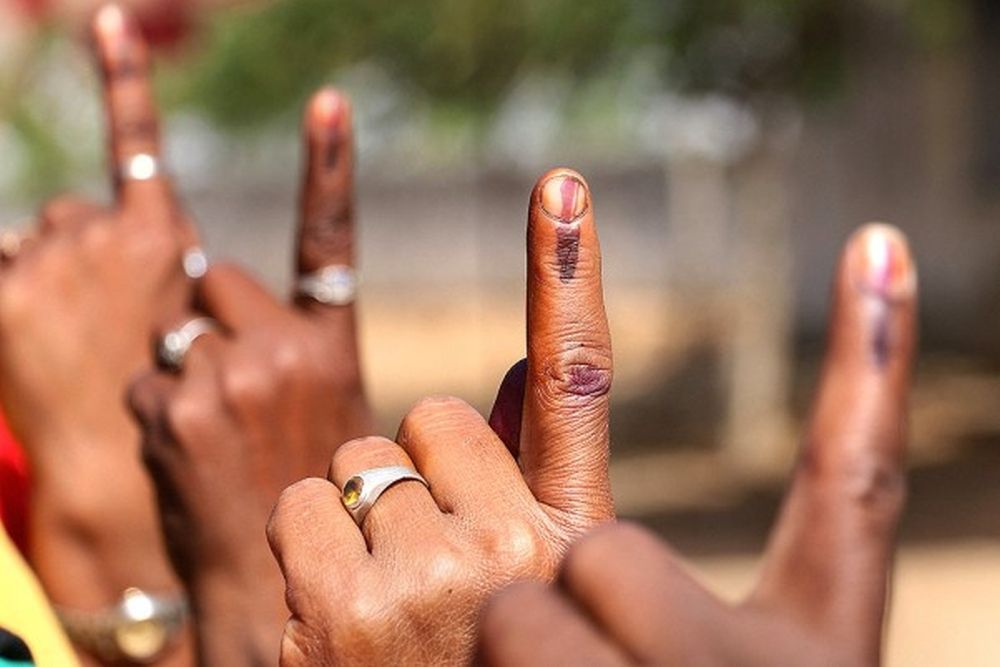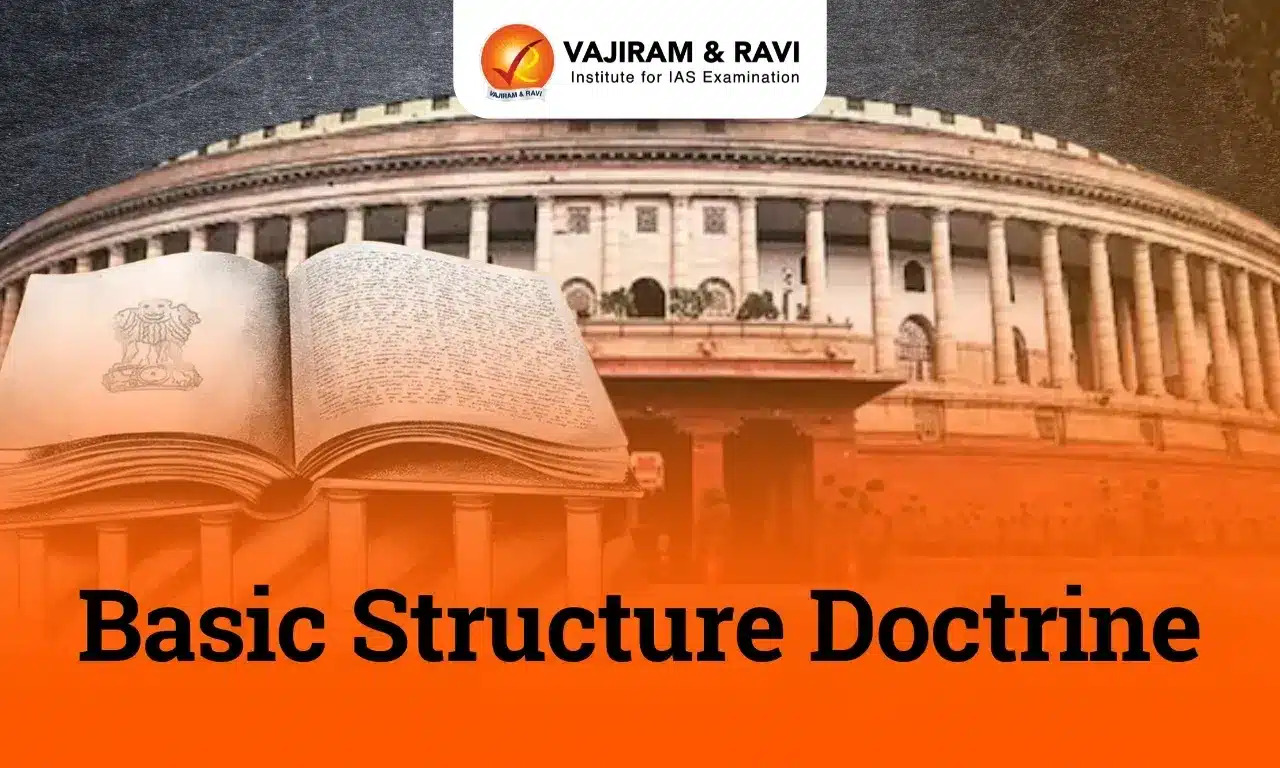The Citizenship Act of 1955 is the fundamental law governing the acquisition and termination of Indian citizenship. It outlines five ways to become an Indian citizen: birth, descent, registration, naturalization, and incorporation of territory. The Act also specifies three grounds for losing Indian citizenship: renunciation, termination, and deprivation.
The Citizenship Act has undergone several amendments, with the most recent one in 2019 facilitating citizenship for certain minority communities from Afghanistan, Bangladesh, and Pakistan.
Citizenship Act 1955 Features
The Citizenship Act of 1955 governs who can obtain Indian citizenship and under what conditions.
- Eligible persons: A person can become an Indian citizen if they were born in India, have Indian ancestors, or have lived in the country for a certain period.
- Exception: Illegal immigrants, on the other hand, are barred from obtaining Indian citizenship.
- An illegal migrant is a foreigner who enters the country without valid travel documents, such as a passport and visa, or who enters with valid documents but stays longer than allowed.
- Constitutional provisions: Citizenship is mentioned in the Constitution’s Union List. This list is entirely within the purview of Parliament.
- Part II of the Indian Constitution deals with citizenship from Articles 5 to 11.
- However, the term “Citizen” has not been defined by the Constitution.
- Single citizenship: The Act does not permit dual citizenship or nationality.
Acquisition of Citizenship Through Citizenship Act of 1955
The Citizenship Act of 1955 specifies five methods for obtaining citizenship – birth, descent, registration, naturalisation, and territorial incorporation.
Citizenship by Birth
| Anyone born in India | ||
| Date | Condition | |
| Between January 1, 1950, and January 1, 1987 | Considered a citizen by birth. | |
| On or after July 1, 1987 | Considered an Indian citizen only if either of his/her parents is an Indian citizen at the time of birth. | |
| On or after December 3, 2004 | Considered an Indian citizen by birth if one parent is Indian and the other is not an illegal immigrant. | |
| Note: If one of the parents is an illegal immigrant, the child born after 2004 will have to obtain Indian citizenship through other means than birth. | ||
Citizenship by Descent
| A person born outside India | ||
| Date | Condition | |
| Between January 26, 1950, and December 10, 1992 | Shall be a citizen of India by descent if his father was a citizen of India at the time of his birth. | |
| On or after December 10, 1992 | Shall be an Indian citizen if either of his parents was an Indian citizen at the time of his birth. | |
| Note: A person born outside India with at least one Indian parent will be granted citizenship if the birth is registered with the Indian consulate in the jurisdiction within one year of the birth. | ||
Citizenship by Registration
| Any person (other than an illegal migrant) | ||
| Type of person | Condition | |
| Person of Indian origin | – Living in India for at least seven years before applying or
– Ordinarily resident in any country or place outside undivided India. |
|
| A foreign person married to an Indian | – Lived in India for seven years before making an application for registration | |
| Person of legal age | – Parents are Indian citizens
– Either of his parents was an earlier citizen of independent India and had been ordinarily resident in India for twelve months prior to making an application for registration. – Registered as an overseas citizen of India cardholder for five years and has been ordinarily resident in India for twelve months prior to making an application for registration. |
|
| Minor children | – Parents are Indian citizens | |
| Note:
– No person of full age shall be registered as an Indian citizen until he has taken the oath of allegiance in the form prescribed in the Second Schedule. – No person who has renounced, been deprived of, or had his Indian citizenship terminated under this Act shall be registered as a citizen of India. |
||
Citizenship by Naturalisation
- Section 6 of the Citizenship Act states that a certificate of naturalisation can be granted to a person who is not an illegal immigrant and has lived in India continuously for 12 months prior to making an application.
- Furthermore, in the 14 years preceding the 12 months, the person must have lived in India for at least 11 years (reduced to five years for the categories covered by the Citizenship Amendment Act of 2019).
Citizenship by Incorporation of Territory
- If any territory becomes a part of India, the Central Government may, by order published in the Official Gazette, specify the persons who will be citizens of India due to their connection with that territory.
- Such persons will be citizens of India as of the date specified in the order.
Termination of Citizenship Through Citizenship Act of 1955
The Citizenship Act 1955 mentions three primary grounds under which Indian citizenship can be terminated – renunciation, termination, and deprivation.
Renunciation of Citizenship
- Any Indian citizen of full age and capacity may file a declaration renouncing his Indian citizenship. That person loses his or her Indian citizenship once the declaration is registered.
- If the declaration for renunciation is made during a war in which India is involved, the Central Government will refuse to register it until the Central Government otherwise directs.
- When a person renounces his Indian citizenship, his or her minor children lose their Indian citizenship as well. When such a child reaches the age of eighteen, he may reclaim his Indian citizenship.
Termination of Citizenship
- When a citizen of India acquires the citizenship of another country voluntarily, his or her Indian citizenship automatically gets terminated.
- This provision, however, does not apply during any war in which India may be involved unless otherwise directed by the Central Government.
Deprivation of Citizenship
An Indian citizen can be deprived of their citizenship under specific circumstances outlined in the Citizenship Act.
- If the citizenship was obtained through fraudulent means, false representation, or by concealing essential information during the process of registration or naturalization.
- If that citizen has demonstrated disloyalty or dissatisfaction with the Indian Constitution as established by law.
- If that citizen engaged in unlawful trade or communication with an enemy during any war in which India is involved or is associated with activities that assist an enemy in such a war.
- If the citizen is sentenced to imprisonment for a minimum term of two years within five years of obtaining registration or naturalization in any country.
- If a citizen has been ordinarily residing outside India for a continuous period of seven years without being a student at an educational institution in a foreign country, employed by an Indian or international governmental organization, or annually registering their intent to retain Indian citizenship at an Indian consulate.
Important Amendments to the Citizenship Act of 1955
The Citizenship Act of 1955 has been amended several times, with a recent amendment in 2019 and has gone through significant changes.
- 1986 Amendment:
- This amendment added the condition that those born in India on or after January 26, 1950, but before July 1, 1987, shall be Indian citizens.
- Citizenship can be obtained for those born after July 1, 1987, and before December 4, 2003, in addition to one’s birth in India, if either of his parents was an Indian citizen at the time of birth.
- 2003 Amendment:
- It defined the concept of an “illegal migrant” who could be imprisoned or deported. It states that an illegal migrant cannot obtain citizenship through naturalisation or registration even if he has lived in India for seven years.
- It also repealed the provision for Commonwealth Citizenship, which was originally provided by the Act of 1955.
- 2015 Amendment: It merged the PIO card scheme and the OCI card scheme, and created a new scheme called “Overseas Citizen of India Cardholder“.
- Citizenship (Amendment) Act, 2019: It provides an accelerated pathway for the citizenship of the members of six communities (Hindus, Sikhs, Buddhists, Jains, Parsis, and Christians) from Pakistan, Bangladesh, and Afghanistan if they have arrived before December 31, 2014.
- It reduced the requirement of residence from 11 to 5 years as a special condition for applicants from these six religions and the three countries mentioned above.
Citizenship Act of 1955 UPSC PYQs
Question 1: With reference to India, consider the following statements: (UPSC Prelims 2021)
- There is only one citizenship and one domicile.
- A citizen by birth only can become the Head of State.
- A foreigner once granted citizenship cannot be deprived of it under any circumstances.
Which of the statements given above is/are correct?
- 1 only
- 2 only
- (c) 1 and 3
- 2 and 3
Answer: (a)
Last updated on April, 2025
→ UPSC Notification 2025 was released on 22nd January 2025.
→ The UPSC Vacancy 2025 were released 1129, out of which 979 were for UPSC CSE and remaining 150 are for UPSC IFoS.
→ UPSC Admit Card 2025 is expected to release in first week of May for CSE Prelims Exam 2025.
→ The UPSC Prelims 2025 is scheduled to be conducted on 25th May 2025 and UPSC Mains 2025 will be conducted on 22nd August 2025.
→ Apply once through it and aspirants can apply for various government exams conducted by UPSC.
→ The UPSC Selection Process is of 3 stages-Prelims, Mains and Interview.
→ UPSC Result 2024 is released with latest UPSC Marksheet 2024. Check Now!
→ UPSC Toppers List 2024 is released now. Shakti Dubey is UPSC AIR 1 2024 Topper.
→ Also check Best IAS Coaching in Delhi
Citizenship Act of 1955 FAQs
Q1. What is the Citizenship Act of 1955?+
Q2. How many times has the Citizenship Act of 1955 been amended?+
Q3. How can Indian citizenship be terminated?+
Q4. Can Indian citizenship be terminated if acquired through fraudulent means?+
Q5. What is overseas citizenship?+
Tags: citizenship act 1955 quest
















